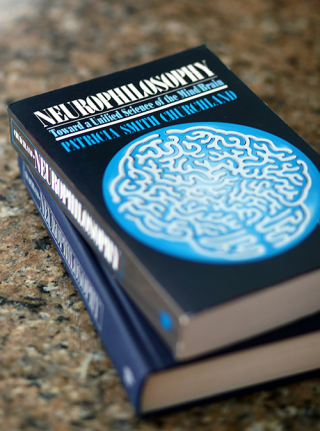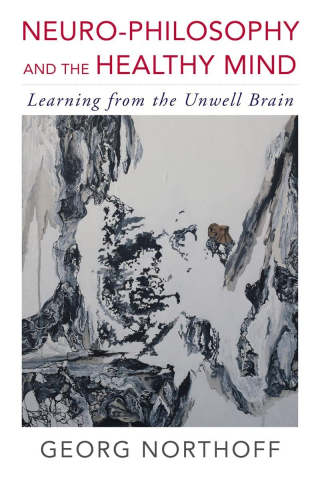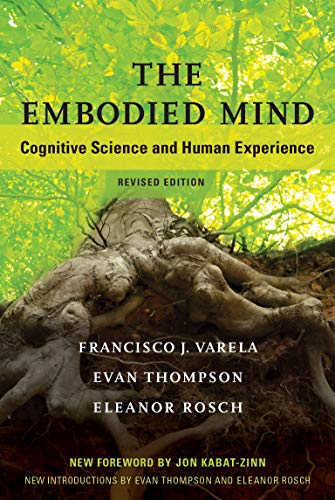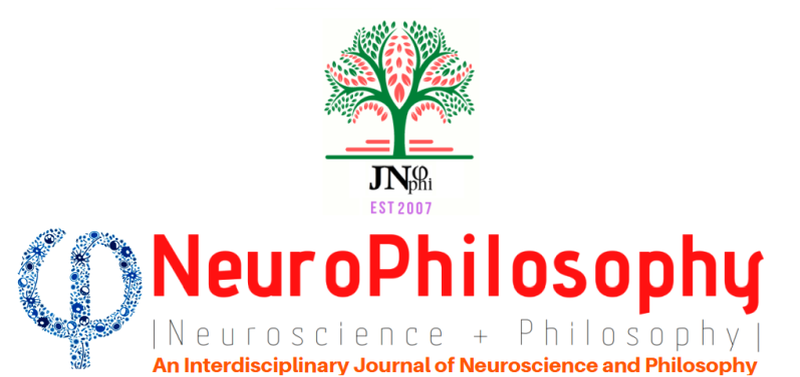Implications of Neuroscience for Ancient Traditional Philosophical Questions
Neurophilosophy is an interdisciplinary field of study that combines neuroscience and philosophy to better understand the nature of the mind and consciousness. It is based on the idea that advances in our understanding of the brain can shed light on longstanding philosophical questions about the nature of the self, free will, consciousness, and the relationship between the mind and the body. At its core, neurophilosophy is concerned with exploring the relationship between the brain and the mind, and understanding how neural processes give rise to mental phenomena such as consciousness, perception, thought, and emotion. It also seeks to address broader philosophical questions related to the nature of the self, free will, and the relationship between mind and body.
Neurophilosophy draws on a range of disciplines including neuroscience, philosophy of mind, cognitive science, and psychology. It involves a combination of empirical research and philosophical analysis, and seeks to bridge the gap between these two fields to develop new insights and perspectives on the workings of the mind and brain. Overall, neurophilosophy is a rapidly evolving field that is generating new and exciting discoveries about the nature of the mind and consciousness, and is poised to have a significant impact on our understanding of the human experience. Advanced neurophilosophy delves deeper into the complexities of the mind and consciousness, often incorporating insights from cutting-edge neuroscience research.

Patricia Churchland is a prominent philosopher and neuroscientist who has had a significant impact on the development of neurophilosophy. Her work has helped to bridge the gap between philosophy and neuroscience, and has provided new insights into the relationship between the brain and the mind. One of Churchland's major contributions to neurophilosophy has been her emphasis on the importance of understanding the neural basis of mental phenomena. She has argued that in order to truly understand the nature of the mind and consciousness, we must look to the brain and its neural processes. This perspective has helped to shift the focus of philosophy of mind away from purely conceptual or linguistic analyses, and towards a more empirical and scientifically grounded approach. Churchland has also been influential in advancing the idea that moral values and beliefs are grounded in the brain and its neural processes. She has argued that moral decision-making involves a complex interplay between neural processes involved in emotion, cognition, and social interaction. This has helped to spur new research in the field of moral neuroscience, and has contributed to a growing understanding of how moral values and beliefs are represented in the brain. Patricia Churchland's impact on neurophilosophy can be seen through her contributions to a number of key areas in the field, including:
Philosophy of Mind: Churchland's work has helped to shift the focus of philosophy of mind away from purely conceptual or linguistic analyses and towards a more empirically grounded approach that incorporates insights from neuroscience. She has argued that understanding the neural basis of mental phenomena is crucial to developing a comprehensive theory of the mind. Neuroethics: Churchland has been a prominent voice in the field of neuroethics, which examines the ethical implications of advances in neuroscience. She has argued that understanding the neural basis of moral decision-making is crucial to developing a more nuanced and sophisticated understanding of ethics.
Social Neuroscience: Churchland has also been influential in the emerging field of social neuroscience, which examines how social behavior and interaction are mediated by the brain. She has argued that understanding the neural mechanisms underlying social behavior can provide important insights into how we interact with others and how we form social bonds. Philosophy of Science: Churchland has also made significant contributions to the philosophy of science, particularly in the area of reductionism. She has argued that reductionism is a useful and necessary approach to understanding complex phenomena such as the mind, and has defended the view that all scientific theories are ultimately reducible to the laws of physics.
Churchland's interdisciplinary approach has helped to bridge the gap between philosophy and neuroscience, and has contributed to a more nuanced and sophisticated understanding of the mind and brain. Her work continues to influence the field of neurophilosophy and to shape our understanding of the relationship between the brain and the mind. Churchland's work has played a crucial role in shaping the development of neurophilosophy, and has helped to establish the field as an important area of interdisciplinary research. Her insights and perspectives continue to influence current research and scholarship in the field, and are likely to shape the future direction of neurophilosophy for years to come. Like any prominent figure in philosophy, Patricia Churchland has been subject to a range of criticisms from other scholars in the field. Some of the most common criticisms of her work include:
Reductionism: Churchland has been criticized for her strong commitment to reductionism, the view that all scientific theories can ultimately be reduced to the laws of physics. Some critics argue that this view overlooks the complex and emergent properties of higher-level phenomena, such as the mind, that cannot be fully explained in terms of lower-level processes.
Naturalism: Churchland has also been criticized for her strong commitment to naturalism, the view that all phenomena can be explained in terms of natural causes and processes. Some critics argue that this view overlooks the possibility of non-natural or supernatural explanations for certain phenomena.
Eliminativism: Churchland has been associated with the controversial view of eliminativism, which argues that certain concepts, such as folk psychology or mental states, are not real and should be eliminated from scientific discourse. Some critics argue that this view is overly radical and ignores the usefulness of these concepts in everyday life.
Moral Realism: Churchland's views on moral realism, which holds that moral facts are objective and mind-independent, have also been subject to criticism. Some critics argue that this view is problematic because it is difficult to explain how moral facts could be objective and mind-independent given that moral beliefs and values vary widely across cultures and individuals.
Churchland's work has been subject to a range of criticisms, reflecting the diverse perspectives and debates within the fields of philosophy and neuroscience. However, despite these criticisms, her work has had a significant impact on the development of neurophilosophy and continues to shape current research and scholarship in the field.

Non-Reductive Neurophilosophy
Georg Northoff is a neuroscientist and philosopher known for his work in the field of neurophilosophy. His approach to neurophilosophy revolves around understanding the relationship between the brain, the mind, and subjective experience. He seeks to bridge the gap between neuroscience and philosophy by investigating the neural mechanisms underlying various philosophical concepts and phenomena.
One of Northoff's central ideas is the concept of the "resting state" of the brain. He argues that the resting state, also known as the default mode network (DMN), plays a crucial role in generating and shaping our subjective experiences and self-related thoughts. According to Northoff, the resting state is responsible for the continuous flow of self-referential thoughts, emotions, and consciousness. He suggests that disruptions or dysfunctions in the resting state can lead to various mental disorders and distortions of subjective experience.
Northoff also emphasizes the significance of understanding the relationship between the brain and the mind from a holistic perspective. He argues against reductionism and advocates for an integrated approach that considers the complex interactions between neural processes, cognitive functions, and subjective experience. Instead of isolating the brain as a purely physical entity, Northoff proposes that the mind and the brain should be seen as interdependent and mutually influencing aspects of our existence. Nonreductive neurophilosophy is an approach that rejects the idea of reducing all aspects of the mind and consciousness to purely physical or neurobiological explanations. It recognizes that while the brain and its neural processes are important for understanding mental phenomena, there are other aspects of human experience that cannot be fully explained by neuroscience alone.
Nonreductive neurophilosophy emphasizes the need for a multidisciplinary approach that incorporates insights from neuroscience, psychology, philosophy, and other relevant fields. It recognizes that there are different levels of explanation and understanding, and that each level provides valuable perspectives on the nature of the mind. One key aspect of nonreductive neurophilosophy is the recognition of the "explanatory gap" or "hard problem" of consciousness. This refers to the challenge of explaining how and why subjective experiences arise from physical processes in the brain. Nonreductive neurophilosophers argue that purely neurobiological explanations cannot fully account for the richness and complexity of conscious experiences. Instead of attempting to reduce consciousness solely to neural activity, nonreductive neurophilosophy explores complementary frameworks that incorporate subjective, first-person perspectives alongside objective, third-person perspectives. This approach acknowledges that conscious experiences have unique qualitative aspects that cannot be reduced to neural activity alone.
Nonreductive neurophilosophers also emphasize the importance of context, meaning, and social factors in shaping our understanding of the mind. They recognize that mental phenomena are not isolated within individual brains but are influenced by cultural, linguistic, and social factors. Therefore, a comprehensive understanding of the mind requires considering the broader context in which it operates. In summary, nonreductive neurophilosophy challenges the idea that all aspects of the mind can be fully explained by reducing them to neural processes. It embraces a multidisciplinary approach that considers different levels of explanation and recognizes the limitations of purely physicalist or reductionist accounts. By incorporating subjective experiences, context, and social factors, nonreductive neurophilosophy aims to provide a more comprehensive and nuanced understanding of the mind and its relationship to the brain.

Phenomenology Reloaded: A Neuroscientific Exploration of First-Person Experience
Neurophenomenology is an interdisciplinary approach that seeks to bridge the gap between neuroscience, phenomenology, and philosophy of mind. It combines insights from neuroscience, which studies the brain and its activity, with phenomenology, which explores subjective experience and consciousness. This approach aims to understand how subjective experiences arise from neural processes. The term "neurophenomenology" was coined by the philosopher and cognitive scientist Francisco Varela in the 1990s. He proposed that the first-person perspective of phenomenology and the third-person perspective of neuroscience can be mutually enriching in understanding the nature of consciousness.
Neurophenomenology emphasizes the importance of subjective experience in understanding the mind. It recognizes that subjective experiences are an essential aspect of consciousness that cannot be fully explained by studying the brain alone. Therefore, it seeks to integrate subjective reports of conscious experiences with the objective data provided by neuroscience. The neurophenomenological approach typically involves combining various research methods. For example, researchers may use neuroimaging techniques like functional magnetic resonance imaging (fMRI) or electroencephalography (EEG) to measure brain activity while individuals engage in specific tasks or report their subjective experiences. This allows for a correlation between neural processes and subjective states.
Additionally, phenomenological interviews or questionnaires are often conducted to gather detailed descriptions of subjective experiences. These descriptions provide valuable insights into the first-person perspective, helping researchers understand the structure, content, and qualities of conscious experiences. Neurophilosophy, on the other hand, is a broader field that encompasses the intersection of neuroscience and philosophy. It seeks to use scientific findings from neuroscience to inform and advance philosophical theories and debates about the nature of the mind, consciousness, perception, free will, and other philosophical topics. Neurophilosophy aims to bridge the gap between empirical investigations of the brain and traditional philosophical inquiry. It recognizes that a deeper understanding of the brain's mechanisms can shed light on longstanding philosophical questions and challenge existing philosophical frameworks. Neurophilosophy employs various methodologies, including conceptual analysis, thought experiments, and empirical research. It integrates philosophical arguments with empirical evidence from neuroscience to develop more comprehensive theories of the mind. Overall, both neurophenomenology and neurophilosophy aim to integrate scientific findings with philosophical inquiries. Neurophenomenology specifically focuses on understanding subjective experience in light of neuroscience, while neurophilosophy encompasses a broader range of topics and uses neuroscience to inform philosophical discussions.

What can we hope for in the future from the combination of neurophilosophy and neuroscience?
The combination of neurophilosophy and neuroscience has the potential to offer significant advances in our understanding of the relationship between the brain and the mind. Some of the areas where we can hope to see progress in the future include:
Understanding the nature of consciousness: One of the biggest mysteries in neuroscience is the nature of consciousness. Combining insights from philosophy and neuroscience could help to shed light on this elusive phenomenon, and offer new insights into how the brain generates conscious experiences.
Developing a comprehensive theory of the mind: Combining insights from neuroscience and philosophy of mind could help to develop a more comprehensive theory of the mind that accounts for both its physical and mental aspects. This could lead to new approaches for treating mental illness and improving mental health.
Understanding the neural basis of moral decision-making: Neurophilosophy has the potential to contribute to a better understanding of the neural mechanisms underlying moral decision-making, which could have important implications for fields such as law and ethics.
Bridging the gap between the humanities and sciences: The combination of philosophy and neuroscience could help to bridge the gap between the humanities and sciences, and offer new insights into the relationship between human culture and the brain.
Overall, the combination of neurophilosophy and neuroscience has the potential to offer significant advances in our understanding of the brain and the mind. As technology and research methods continue to advance, we can hope to see more interdisciplinary collaboration and new insights into these complex and fascinating areas of study.
The combination of neurophilosophy and neuroscience has already produced some exciting results, and there is much to hope for in the future. Here are some potential areas of advancement with references to relevant literature:
A deeper understanding of consciousness: One of the main goals of neurophilosophy is to understand the relationship between the brain and consciousness. Recent advances in brain imaging and neural recording techniques have led to new insights into the neural basis of consciousness, but many questions remain. By combining insights from philosophy and neuroscience, we may be able to develop a more comprehensive theory of consciousness that accounts for both its physical and mental aspects.
Development of more effective treatments for mental illness: Neurophilosophy has the potential to contribute to the development of new approaches for treating mental illness. By understanding the neural basis of mental disorders, we may be able to develop more targeted and effective treatments.
A better understanding of the neural basis of morality: Neuroscience has already shed light on the neural mechanisms underlying moral decision-making, but there is still much to learn. By combining insights from neuroscience and philosophy, we may be able to develop a more comprehensive theory of morality that takes into account both its biological and cultural aspects.
Bridging the gap between the humanities and sciences: Neurophilosophy has the potential to bridge the gap between the humanities and sciences by providing a framework for understanding the relationship between human culture and the brain. This interdisciplinary approach has the potential to yield new insights into a wide range of topics, from art and literature to social and political behavior.
Overall, the combination of neurophilosophy and neuroscience holds great promise for advancing our understanding of the brain and the mind. By bringing together insights from these two fields, we may be able to develop a more comprehensive and nuanced understanding of some of the most complex and fascinating aspects of human experience.
Sultan Tarlacı, Editor
References
Bayne T & Hohwy J. (2016). The Oxford Handbook of the Philosophy of Consciousness. Oxford University Press.
Insel TR. (2018). Mental disorders: equity and access in the 21st century. Nature, 555(7695), 27–30.
Greene JD. (2014). Beyond Point-and-Shoot Morality: Why Cognitive (Neuro)Science Matters for Ethics. Ethics, 124(4), 695–726.
Illes J & Racin E. (2005). Imaging or Imagining? A Neuroethics Challenge Informed by Genetics. The American Journal of Bioethics, 5(2), 5–18.

















